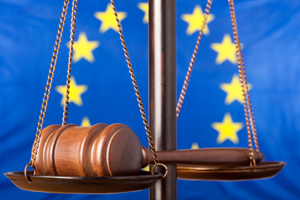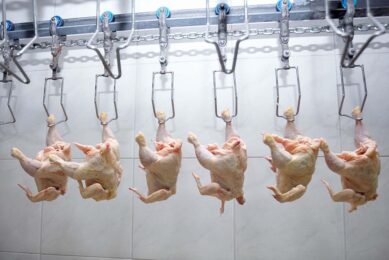Danish poultry company opposes EU movement regulation

Gråsten Fjerkræ ApS, a Danish company, producing broilers and trading with fresh chicken meat in Denmark and across the Danish border, and other similar companies, are of the opinion that the Danish Food Authorities have implemented the EC General Food Law Regulation 178/2002 in a manner that is contrary to what was intended.
The company, therefore has submitted complaints to the Danish Parliamentary Ombudsman. They believe that a comprehensive and consistent theme in the Regulation stresses that there may not be established conditions that hinder the free movement of goods between EU countries, and this freedom of movement seems to be restricted by the Danish Food Authorities through their random checks, called case-by-case-monitoring of Salmonella and Campylobacter.
Danish Food Authorities have the powers to withhold fresh meat until the results of the test are available. Experience shows that it often takes 10 to 14 days before there is a result. This means the entire batch must be destroyed.
Spokesman for EuroDan Poultry Forum, Thorkil Ambrosen says: “I consider that the way the Danish Food Authorities has implemented Art.14 in the Regulation 178/2002, does not seem to be in accordance with the intent of the Regulation, so I am very much looking forward to the answer from the Ombudsman.”
The Danish Food Authorities have applied to the Commission for special guaranties for Salmonella in chicken meat in 2007 and in this connection they have established the case-by-case-monitoring, not only for Salmonella but also for Campylobacter.
Denmark is the only EU country who has established the case-by-case-monitoring according to Art. 14 of the Regulation. The Regulation says that measures adopted should be based on risk analyses, risk assessment, risk management, and risk communication, but the free movement is an essential aspect of the internal market and may not be attacked.
The case-by-case-monitoring seems to be practised in an illegal way with benefit for the Danish produced chicken meat with the aim to hinder chicken meat produced in other EU countries to be imported to Denmark.
The Regulation also refers to EFSA and says that the Member States shall cooperate with EFSA, but it seems not to be the case here. The Danish way of implementing the Regulation casues trouble for the companies who are working across the Danish border and create a lot of frustrations and loss of money for the operators without profiting human health.
EuroDan Poultry Forum is against the way the actual case-by-case-monitoring are managed and are strongly against the idea of giving the Danish Poultry Industry special guaranties for Salmonella.
“It doesn’t make sense in the situation where Denmark is importing about 60% of the chicken meat for consumption, exporting about 20% of the live broiler chickens for slaughter in Germany or the Netherlands including Salmonella positive flocks, and exporting about two thirds of their chicken meat produced in Denmark,” says Ambrosen.
The Regulation 178/2002 is the basis regulation in EU. A Member State can decide to have stronger rules in their own country, but it is not fair to make hinder to the free movement for chicken meat from Member States who follow the Regulation, and it dos not make meaning to give Denmark special guaranties for Salmonella as long Denmark are importing and exporting as they do now.













